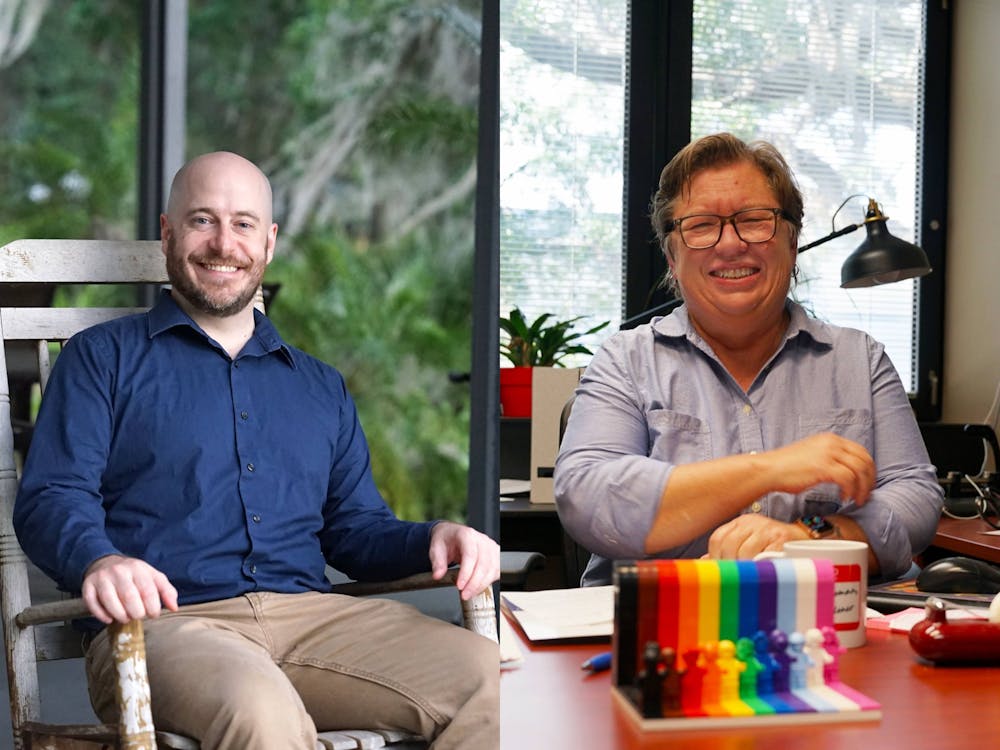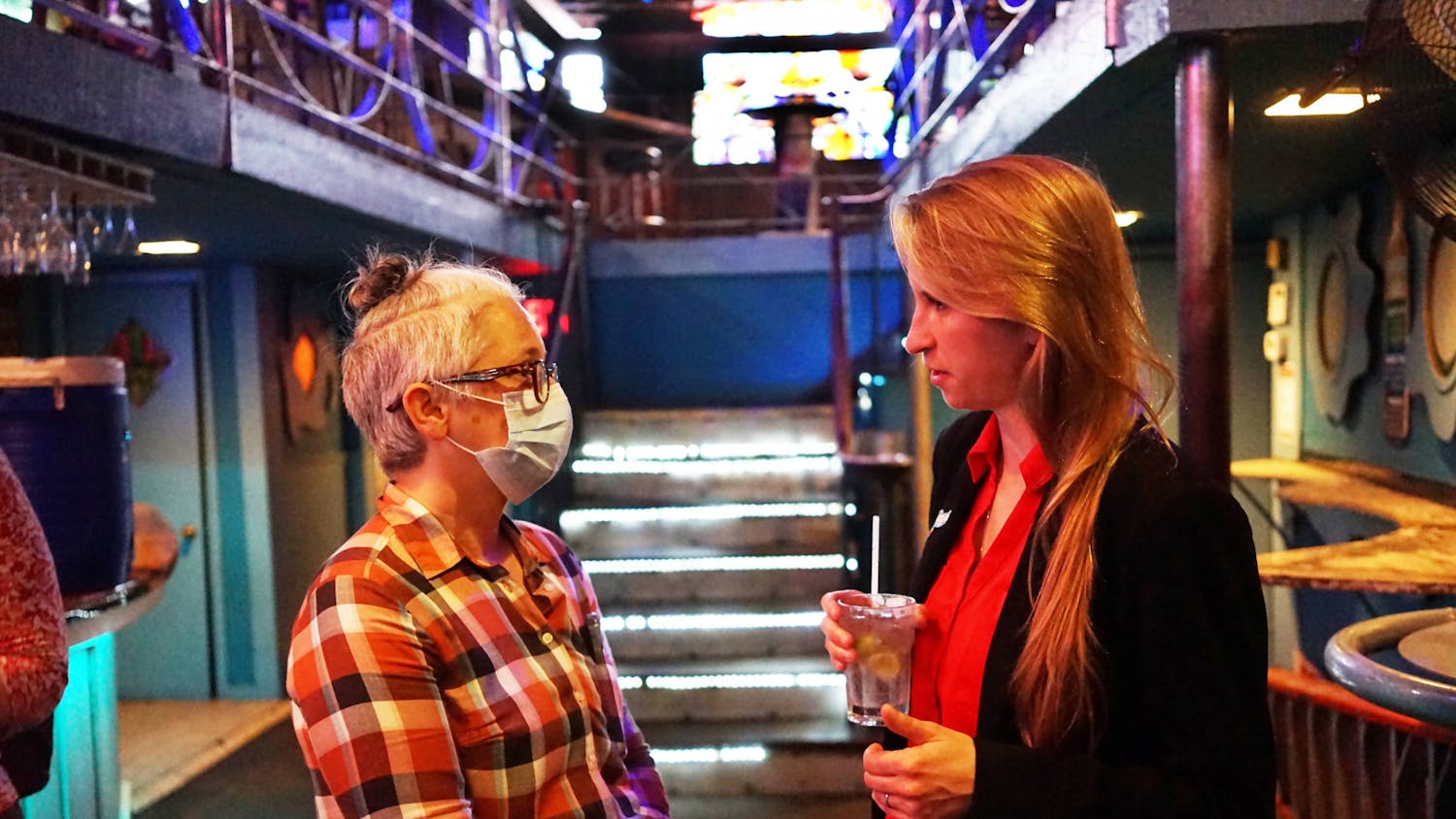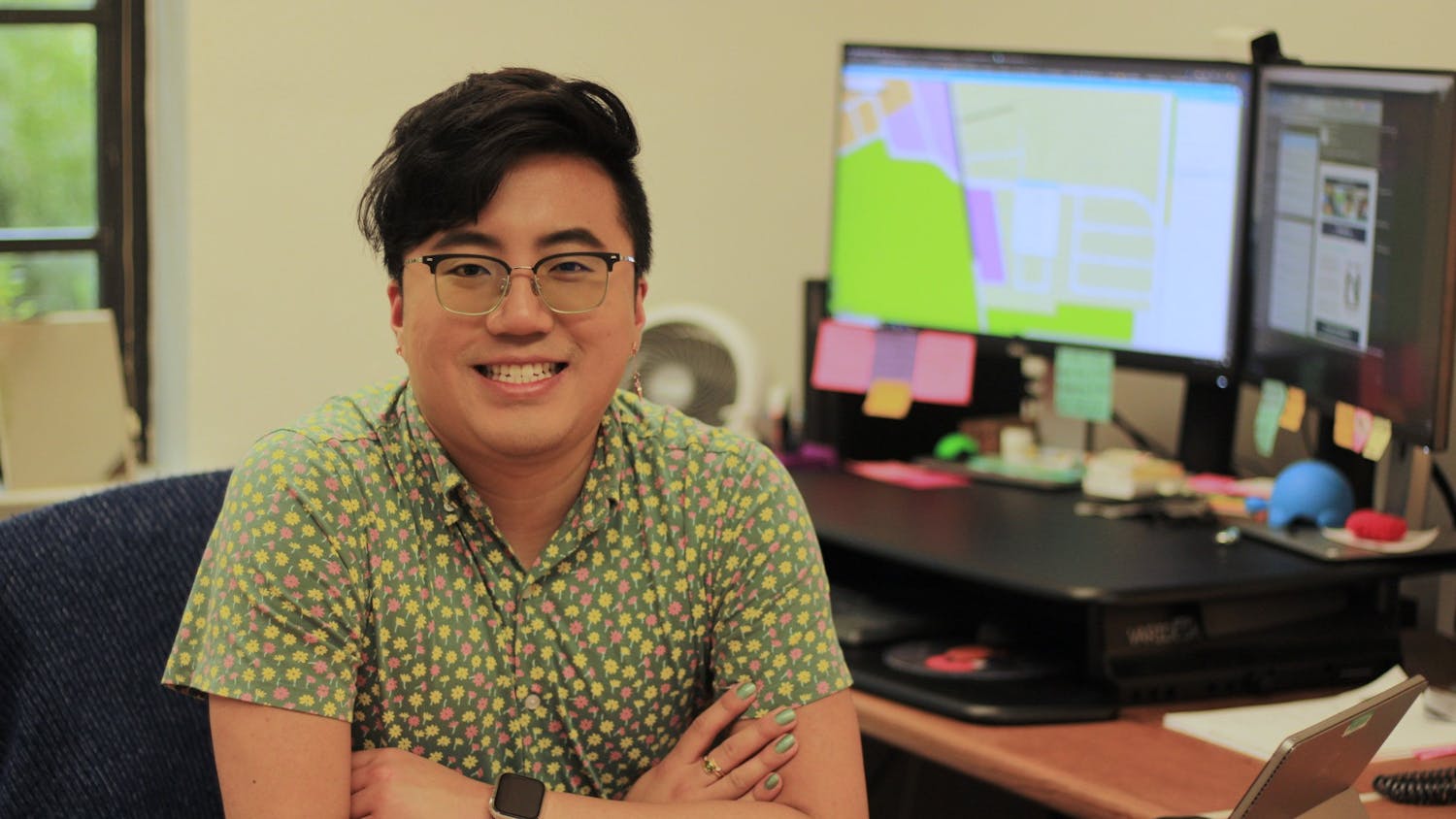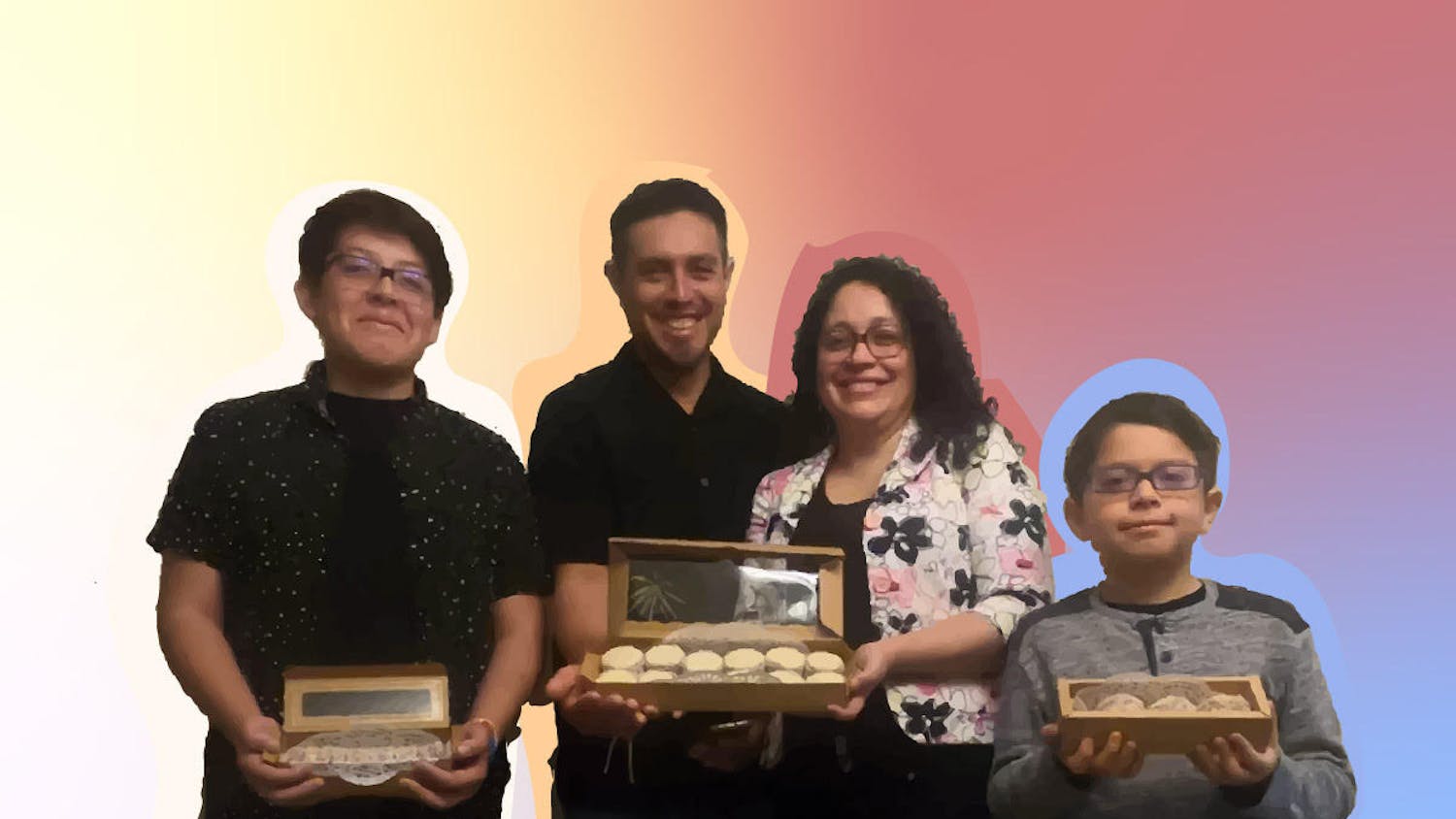Gainesville City Commissioner Casey Willits and Alachua County Commissioner Mary Alford represent Gainesville as the only two elected officials in the county who are openly a part of the LGBTQ community.
The two commissioners have followed contrasting paths to their positions today — both professionally and personally.
Alford, the District 1 county commissioner, holds a special place in her heart for Gainesville — her hometown. She’s the oldest of nine children raised in a Mormon household, which shaped her heavily, she said.
“I don’t want to say Mormonism sort of takes away some of your identity, but you are kind of molded into a thing,” she said. “It took me a while to realize I was something different than that thing.”
She molded herself into an environmental engineer through many years in the local school system, working several jobs at a time. However, her busy lifestyle distracted her from developing her identity.“My mind was just totally focused on school and everything else, and at some point I was like, ‘I need to say who I am,’” Alford said.
She came out as gay just two years before graduating with her master’s degree. She finished up school and went off to work in the power industry, where she worked for several years — often the only LGBTQ person and the only woman in the room.
“I was out enough that I was asked to teach the diversity and inclusion classes for a bunch of people, but I didn’t make a big deal out of it because it was a very conservative environment,” Alford said.
After facing health issues, she left the industry. She was diagnosed with cancer.
The diagnosis forced her to soul search and led her to the conclusion to quit working in power plants.
Instead, she worked with her partner in sustainability consulting. They owned a firm consulting with utility companies as environmental project managers.
During this time, she sought to make sustainable home construction easier and advocated for the adoption of tiny homes, a trend she felt she was years ahead on.
On an individual scale, Alford faced discrimination in this field. She told the story of how her firm, owned by herself and her ex-partner, lost a big job in Lake City after they met with the city council.
“One of them just looked at us and said, ‘You know, I don’t believe this is a job that two women can do,’” she said.
She realized she wanted to run for office after Alford and her partner split professionally and ended their personal relationship.
“I’d been involved in a lot of non-profit work, a lot of working with environmental organizations — actually serving on several boards for the city and the county,” Alford said. “At some point I got tired of advising, and I wanted to be in a decision-making capacity.”
She put her name in the hat, unsure of what would come of it, only to find herself beating a 20-year-long incumbent with about 60 percent of the vote.
“I expected it to be a close race; I didn’t know that I would win,” Alford said. “So I was really shocked to find myself in office.”
Despite recent political progression, members of the LGBTQ community still face scare tactics culturally from members of their local community, Alford said.
“When the pride center was attacked last fall, I went down there and it really hurt my heart to see what had happened and the impact of hate on other people,” she said. “Rocks were thrown so hard that they had embedded themselves to glass — that they embedded themselves into the drywall.”
Regardless, she overall felt comfortable with her place in the Gainesville community.
“This county is so welcoming and appreciative of diversity as a whole that I really haven’t felt threatened at all,” Alford said. “I don’t feel afraid; I’m not a person who wants to live my life in fear.”
Above all, though, Alford felt happy that she could work in a place that was accepting.
Willits, the District 3 city commissioner, took a direct path to office in Gainesville.
Originally from Arkansas, Willits moved across the South and worked for various political campaigns and LGBTQ organizations. He started in his local community, eventually getting the opportunity to work in Florida.
In Florida, he worked against the anti-gay marriage amendment and campaigned for former President Barack Obama. He focused on mobilizing voters by building a progressive coalition meant to reach specific communities.
Through his work around the state, he came across Gainesville; first in 2014, then again in 2015. Multiple factors attracted him to the city — its likeness to his own Arkansas hometown, its flat and bike friendly geography — but mainly, he felt his political background drew him there.
“I really found a home in Gainesville but then also realized that we need to continue to elect people to achieve those things,” Willits said.
Counter to the progressive policies Willits advocates for, Florida has taken several actions that are hostile to the LGBTQ community. The primary example is HB 1557, known commonly as “Don’t Say Gay,” which prevents K-12 classrooms from discussing sexual orientation and gender identity.
The decisions felt personal to him. Though many members of the LGBTQ community might argue their sexuality does not define them, Willits said it has affected “way too much” of his past to separate himself from his identity.
Describing the state’s actions as part of a “renewed threat,” Willits argued DeSantis’ words attempt to deputize citizens into policing the LGBTQ community’s culture and lifestyle.
Willits pointed to the misuse of the word “grooming” to equate making LGBTQ culture visible to youth with indoctrinating them. It’s a call to violence, and even at the city level, it requires “all hands on deck,” he said.
“We have to fight politically; we have to fight in courts,” Willits said. “Individuals and communities and networks have to prepare themselves for worst-case scenarios.”
Willits experienced some of those worst-case scenarios, starting when “homosexual acts” were a criminal offense during his time in Arkansas. The progression was quick coming to Gainesville and experiencing more protections before receiving protection of marriage rights by the U.S. Supreme Court.
Willits couldn’t think of any discrimination he experienced locally.
Such comfort felt like a luxury compared to West Virginia, where he faced housing discrimination. In his attempts to find a place to rent, he struggled to find a place where two men could live together.
Willits felt that, compared to many cities he has been to, Gainesville is one of the “most advanced.” His sexuality was not even an issue when he ran for office.
“Gainesville is truly, truly special in the commitment to LGBTQ rights,” Willits said. “Particularly early on, they kind of led the way in passing human rights ordinances that weren’t just about sexual orientation but that included gender identity and then defending those at the ballot box.”
Willits acknowledged many residents simply see Gainesville as a college town. However, he believes it has the ability to retain its residents longer than they expect because of its accepting nature.
“Gainesville is a shining beacon,” Willits said. “It’s a shining city on the hill.”
Contact Jacob Sedesse at jsedesse@alligator.org. Follow him on Twitter @jacobsedesse.
Jacob Sedesse is a UF Media Production, Management and Technology senior and general assignment reporter for the metro desk. You may recognize his work from WUFT, where he anchored Morning Edition on WUFT-FM among other programs.






